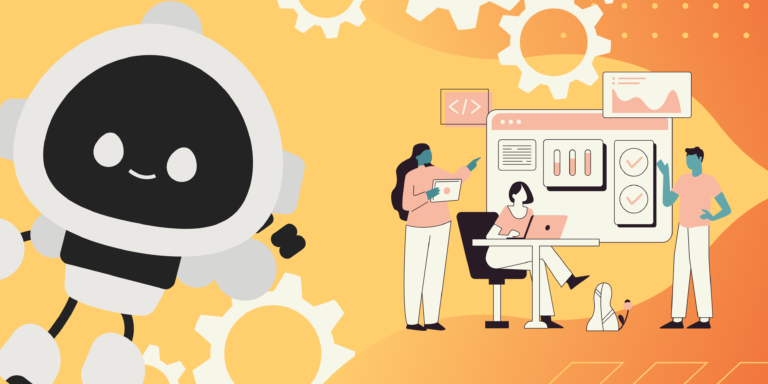In the ever-evolving landscape of digital transformation, the term enterprise AI software has emerged as a key differentiator for organizations striving to stay ahead of the competition. Businesses today are no longer satisfied with tools that simply manage processes — they demand intelligent systems that can analyze data, learn patterns, predict outcomes, and drive smarter decisions. Traditional business software, while reliable for basic automation and data management, lacks the adaptability and intelligence required in today’s fast-paced environment.
As enterprises scale, their operational demands become more complex. This is where enterprise AI solutions play a pivotal role, transforming the way businesses operate, communicate, and innovate. Unlike conventional systems, AI development integrates data science, machine learning, and automation to create intelligent solutions that evolve with the organization’s needs. With the help of advanced AI development companies, enterprises can harness the full potential of artificial intelligence to optimize workflows, personalize customer experiences, and make data-driven strategic decisions.
In this blog, we will explore how enterprise AI software fundamentally differs from traditional business software and why adopting AI-driven systems is essential for large-scale organizations looking to future-proof their operations.
Understanding Traditional Business Software
Traditional business software has long been the backbone of enterprise operations. From accounting systems and customer relationship management tools to enterprise resource planning platforms, these systems are designed to standardize and automate repetitive business processes. They function based on predefined rules, logic, and workflows, offering stability and consistency across departments.
While such software can streamline operations, it often lacks adaptability. Traditional systems follow static algorithms and rely heavily on human input to process data and make decisions. This creates limitations in scalability and efficiency, especially in industries that require real-time analytics and adaptive responses.
For example, a traditional CRM might record customer interactions and generate reports, but it cannot predict customer behavior or suggest personalized engagement strategies without manual analysis. This is where enterprise AI development transforms the game by introducing learning mechanisms that make software not only functional but intelligent.
What is Enterprise AI Software?
Enterprise AI software refers to a new generation of intelligent business applications that leverage artificial intelligence, machine learning, and automation to enhance enterprise performance. These systems don’t just process information—they learn from it. They continuously evolve by analyzing massive datasets, recognizing patterns, and improving over time.
Enterprise AI solutions combine predictive analytics, natural language processing, computer vision, and cognitive automation to enable smarter decision-making across various business functions. From finance and logistics to marketing and HR, AI-infused platforms provide insights that traditional software simply cannot deliver.
Unlike legacy systems that operate on structured data and static logic, AI solutions for enterprise can process both structured and unstructured data, such as emails, social media content, voice interactions, and sensor data. This adaptability enables organizations to act on real-time insights, reduce operational inefficiencies, and anticipate future challenges with greater accuracy.
Key Differences Between Enterprise AI Software and Traditional Software
1. Learning vs. Static Functionality
Traditional business software is rule-based and operates according to human-defined parameters. It performs the same tasks repeatedly without adapting to changes in data or environment. Enterprise AI software, on the other hand, is dynamic and self-learning. It uses machine learning algorithms to refine processes, predict outcomes, and improve performance automatically.
For instance, AI-driven systems can analyze customer behavior trends and adjust marketing campaigns accordingly—something conventional tools cannot achieve without human input. This adaptability ensures that enterprise AI solutions remain effective even as market conditions, customer needs, and data sources evolve.
2. Data Utilization and Real-Time Insights
Traditional systems rely primarily on structured data stored in databases. They provide historical analysis but struggle with real-time or unstructured data. Enterprise AI development focuses on building systems capable of handling diverse data formats in real time.
AI-powered platforms can integrate data from multiple sources, analyze it instantly, and provide actionable insights. This capability enables decision-makers to respond quickly to emerging trends, market fluctuations, or customer demands. In industries such as finance, healthcare, and retail, this agility can significantly impact competitiveness and profitability.
When enterprises build AI solutions tailored to their specific workflows, they unlock the ability to make data-driven decisions that are timely, precise, and predictive rather than reactive.
3. Automation and Intelligence
Traditional software automates repetitive tasks based on fixed programming logic. It can streamline workflows but cannot make contextual judgments or adapt dynamically. In contrast, enterprise AI solutions bring intelligence to automation.
Through AI agent development, organizations can create autonomous systems capable of understanding context, learning user preferences, and making decisions independently. For example, AI agents can manage logistics, customer support, or data analysis without requiring constant supervision.
Furthermore, AI chatbot development enables customer service automation that feels human-like and conversational, unlike the limited scripted responses of traditional chatbots. This form of intelligent automation empowers businesses to scale operations efficiently while maintaining personalization and accuracy.
4. Scalability and Integration
Legacy systems often struggle with scalability, especially when enterprises expand across regions or deal with increasing data volumes. Integrating traditional software with new technologies can also be challenging.
Enterprise AI development services are built with scalability and flexibility in mind. These solutions seamlessly integrate with existing enterprise resource planning (ERP), customer relationship management (CRM), and other digital systems. By using APIs and cloud-based architectures, AI systems can scale effortlessly to accommodate new data sources and business requirements.
Moreover, AI-based platforms support continuous updates and model retraining, ensuring that the software evolves with the organization rather than becoming obsolete.
5. Customization and Adaptability
Traditional software typically follows a one-size-fits-all approach, requiring heavy customization to fit unique enterprise needs. This not only increases costs but also limits innovation.
On the other hand, custom software development integrated with enterprise AI software offers adaptive solutions that align perfectly with an organization’s goals and workflows. AI-powered systems can be personalized to perform specific functions such as demand forecasting, risk analysis, or customer sentiment evaluation.
As these models learn from continuous data input, they fine-tune themselves for better accuracy and relevance. This means businesses can adapt faster to new challenges, achieving greater flexibility than ever before.
How Enterprise AI Solutions Are Revolutionizing Business Operations
The introduction of enterprise AI development has transformed how companies operate across every industry. AI-driven insights are now central to innovation, helping enterprises identify opportunities, minimize risks, and enhance productivity.
AI-powered analytics tools can predict supply chain disruptions before they occur, recommend optimal inventory levels, and even forecast sales performance. This predictive capability replaces guesswork with precision, allowing organizations to plan proactively rather than reactively.
Similarly, in marketing and customer service, AI chatbot development has redefined engagement. Chatbots can now interpret emotions, context, and intent, delivering highly personalized responses. This not only improves customer satisfaction but also reduces the burden on human support teams.
In HR and talent management, AI agent development enables automated candidate screening, employee engagement tracking, and performance analysis—enhancing workforce efficiency and satisfaction. The ability of AI to learn and evolve ensures continuous improvement across departments.
Why Enterprises Are Transitioning to AI-Driven Systems
The shift from traditional systems to enterprise AI solutions is not merely a trend—it’s a strategic imperative. As data becomes the lifeblood of modern organizations, AI provides the analytical backbone to make sense of it.
Traditional systems can process data but fail to derive actionable intelligence from it. AI solutions for enterprise, however, extract deeper insights, recognize emerging opportunities, and identify potential threats in advance. This predictive power gives companies a competitive edge.
Moreover, enterprises adopting enterprise AI development services benefit from automation at scale. Whether it’s predictive maintenance in manufacturing, intelligent forecasting in retail, or fraud detection in finance, AI enables efficiency and accuracy that traditional systems simply can’t match.
Challenges in Transitioning from Traditional to AI Systems
Despite its immense potential, the transition from legacy systems to enterprise AI software can be complex. It requires careful planning, robust data infrastructure, and skilled professionals who understand both business logic and AI technology.
One of the main challenges lies in data quality and integration. AI systems rely heavily on clean, structured, and comprehensive data. Organizations must modernize their data ecosystems to ensure seamless AI adoption.
Another challenge is workforce adaptation. Employees need to be trained to work alongside intelligent systems. However, once integrated effectively, enterprise AI development can empower teams, not replace them, enabling a collaborative environment where human creativity and machine intelligence coexist.
The Future of Enterprise Software: AI as the Core
As technology evolves, the distinction between traditional software and enterprise AI solutions will continue to widen. The future belongs to systems that can learn, adapt, and evolve with the enterprise.
AI will become the central nervous system of every large-scale organization, driving innovation, optimizing performance, and enabling real-time decision-making. Businesses that embrace enterprise AI development services early will be better positioned to navigate this future with confidence.
The convergence of AI development, custom software development, and automation will redefine enterprise technology, leading to more intelligent, agile, and customer-centric ecosystems.
Conclusion: Embracing the AI-Driven Future
The comparison between enterprise AI software and traditional business software clearly illustrates that the future of enterprise technology lies in intelligence, adaptability, and automation. Traditional software may have served as the foundation for digital operations, but AI solutions for enterprise are the key to scaling innovation and efficiency in the modern era.
Enterprises adopting AI today are not just improving their current systems—they are future-proofing their entire business. From predictive analytics and intelligent automation to personalized customer engagement, the benefits of AI extend far beyond simple process optimization.
The journey toward intelligent transformation begins with the right strategy and the right expertise. To fully unlock AI’s potential, organizations must collaborate with skilled professionals who understand both the technical and business dimensions of enterprise AI development. As you embark on this journey, ensure you Hire AI developers who can design scalable, intelligent solutions tailored to your enterprise’s unique challenges and opportunities.





